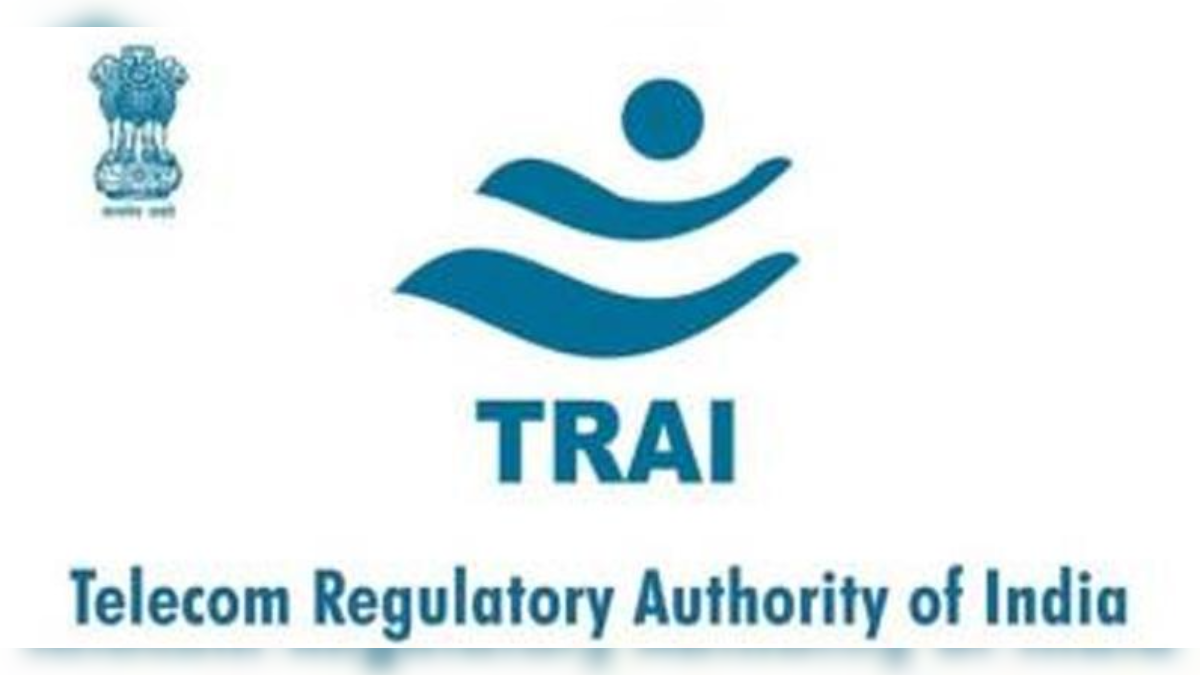What do the Attorneys for consumer complaints against internet service providers in India? They are working in accordance with the legislation and regulations prevailing in India. This is the reason why they are able to bring forth their clients a win in their cases. What is the main thing that you should do when you have to go to Attorneys for ISP Consumer Complaints? Especially for an attorney complaint against an internet service provider in India. You must make sure that the service provider you are going through has been registered with the regulatory authorities.
Lodge a complaint against Internet Service providers
There are many organizations and associations that regulate the registration of internet service providers. They even appoint an office where people can lodge a complaint against such providers. You should also check the complaints section and see if there are any complaints from your neighbors. You can take the help of Trai attorney for an attorney complaint against internet service providers in India who will be able to bring your case forward in a successful manner. He will be able to convince the service provider that there is no valid reason for not registering him or her with the regulatory authority. Once you have lodged a complaint, the service provider would then contact the customer service department of your service provider and explain to them that they had received a complaint about his or her services.
Attorneys For Consumer Complaint Against Internet Service Providers: Law Masters – Consumer Law Firm
I. Introduction
In this era of digital dominance, consumers often find themselves grappling with the enigmatic realm of Internet Service Providers (ISPs). The online world has ushered in a new era of convenience, but it has also brought forth a myriad of frustrations in its wake. Here, we delve into the intricate domain of consumer complaints against ISPs and unveil the pivotal role that adept attorneys play in resolving these issues.
Setting the Stage: Consumer Frustrations with Internet Service Providers
Consumer dissatisfaction with ISPs is a prevailing concern, stemming from a multitude of grievances. These include inconsistent service quality, unexpected billing discrepancies, and contractual disputes, all of which are akin to thorns in the side of modern consumers.
The Role of Attorneys in Consumer Complaints
Attorneys, with their legal acumen and advocacy skills, stand as staunch allies for consumers entangled in disputes with ISPs. They are the vanguards who navigate the complex legal landscape, ensuring that consumers’ voices are heard and their rights upheld.
II. Understanding Consumer Rights in Internet Services
To effectively address consumer complaints against ISPs, it’s imperative to first comprehend the rights and responsibilities of subscribers in this digital age. Let’s explore the intricacies of consumer rights and the common tribulations faced by internet service subscribers.
Defining Consumer Rights in the Digital Age
- Privacy Protection: Consumers have the right to data privacy, safeguarding their personal information from unwarranted intrusion.
- Service Reliability: ISPs are obligated to provide a consistent and reliable internet connection, as per service agreements.
- Transparent Billing: Clear and understandable billing statements are a consumer’s prerogative.
Common Issues Faced by Internet Service Subscribers
- Downtime Dilemmas: Frequent outages and disruptions can disrupt daily life and work.
- Overage Charges: Excessive data usage fees often catch consumers off guard.
- Contractual Confusion: Misinterpretation of contractual terms leads to disputes.
III. Choosing the Right Consumer Law Firm
Selecting the right legal representation is paramount when facing off against ISPs. Consumer law firms specialize in navigating this intricate terrain, and various factors must be considered when making this critical choice.
The Importance of Specialization in Consumer Law
- Expertise Matters: Specialized attorneys possess in-depth knowledge of consumer protection laws.
- Navigating Regulations: They are well-versed in the regulatory frameworks governing ISPs.
- Track Record: A successful history of handling similar cases is a testament to their proficiency.
Factors to Consider When Selecting an Attorney
- Experience: Prior experience in handling ISP-related complaints.
- Communication: Effective communication and accessibility.
- Fees: Transparent fee structures and billing practices.
IV. Initial Consultation: Assessing Your Complaint
The initial consultation with an attorney is a pivotal step in resolving ISP-related issues. During this phase, gathering relevant documentation and evaluating the merits of your complaint are essential tasks.
Gathering Relevant Documentation
- Contractual agreements
- Billing statements
- Records of communication with the ISP
- Evidence of service disruptions or quality issues

Evaluating the Merits of Your Complaint
- Legal Grounds: Assessing the complaint’s viability based on applicable laws.
- Strength of Evidence: Determining the quality and admissibility of collected evidence.
- Potential Outcomes: Understanding the range of possible resolutions.
V. Negotiating with Internet Service Providers
Negotiation is often the initial approach to resolve complaints. Effective strategies and understanding the available settlement options are key components of this process.
Strategies for Effective Negotiation
- Maintaining Composure: Remaining composed and respectful during negotiations.
- Leveraging Legal Expertise: Utilizing legal insights to bolster negotiation positions.
- Documentation: Backing negotiations with concrete evidence.
Navigating Settlement Options
- Mediation: A neutral third party facilitates discussions.
- Arbitration: A binding resolution through an arbitrator.
- Settlement Agreement: Finally, Drafting an agreement that outlines the terms of resolution.
VI. Filing a Formal Complaint
When negotiation fails to yield a satisfactory resolution, consumers may opt to file a formal complaint against their ISP. This section explores the processes involved, including understanding regulatory bodies and the steps for preparing and submitting complaints.
Understanding Regulatory Bodies and Processes
- Federal Communications Commission (FCC): The regulatory authority overseeing ISPs in the United States.
- State-Level Agencies: State-specific bodies that may handle ISP complaints.
- Complaint Procedures: Finally, Familiarizing oneself with the complaint submission guidelines of relevant regulatory bodies.
Preparing and Submitting Complaints
- Documentation Compilation: Organizing and presenting evidence effectively.
- Proper Channels: Identifying the appropriate avenue for complaint submission.
- Timeliness: Finally, Adhering to deadlines and response windows set by regulatory bodies.
VII. Litigation as a Last Resort
In instances where all else fails, litigation may become a necessary recourse. Understanding when legal action is warranted and the stages involved in suing an ISP is crucial.
When Legal Action is Necessary
- Exhausting Other Avenues: Demonstrating that alternative resolution methods were attempted.
- Substantial Harm: Establishing significant harm or damages.
- Legal Standing: Finally, Ensuring the complainant has legal standing to sue.
The Stages of a Lawsuit Against an Internet Service Providers
- Pleadings: Filing a complaint and receiving a response from the ISP.
- Discovery: Gathering evidence through requests, depositions, and subpoenas.
- Trial: Presenting the case before a judge or jury.
- Appeal: Finally, Post-trial actions in the event of an unfavorable outcome.
VIII. Class Action Lawsuits and Multi-Party Complaints
Collective action can amplify the impact of consumer complaints against Internet Service Providers. This section explores the concept of class action lawsuits and how individuals can join or initiate them.
The Power of Collective Action
- Strength in Numbers: The ability to pool resources and legal expertise.
- Increased Visibility: Drawing attention to widespread Internet Service Providers issues.
- Risk Sharing: Finally, Distributing legal costs among multiple plaintiffs.
Joining or Initiating a Class Action Suit
- Eligibility: Determining eligibility and suitability for class action participation.
- Locating Existing Cases: Identifying ongoing class action suits against ISPs.
- Initiating a Class Action: Finally, The process of starting a class action lawsuit.
IX. Recent Consumer Wins Against Internet Service Providers
Reviewing recent success stories and legal precedents in consumer complaints against ISPs offers valuable insights and lessons learned.
Success Stories and Legal Precedents
- Notable Case Outcomes: Examining cases where consumers prevailed.
- Impact on ISP Practices: Assessing changes implemented by Internet Service Providers following legal actions.
- Precedent for Future Cases: Finally, How recent victories influence future complaints.
Lessons from Notable Cases
- Persistence Pays: The role of tenacity in consumer victories.
- Importance of Legal Representation: The impact of skilled attorneys on case outcomes.
- Advancing Consumer Rights: Finally, How these cases contribute to broader consumer protection.
X. Protecting Your Rights in the Digital Age
Preventive measures and staying informed about consumer rights are essential components of safeguarding against Internet Service Providers disputes.
Staying Informed About Consumer Rights
- Regular Updates: Keeping abreast of evolving consumer protection laws.
- Online Resources: Utilizing reputable online sources for information.
- Consulting Attorneys for ISP Consumer Complaints: Finally, Seeking legal counsel for clarification on rights.
Proactive Measures to Prevent Internet Service Providers Disputes
- Reading Contracts Thoroughly: Understanding the terms and conditions of service agreements.
- Documenting Issues: Keeping records of service disruptions, billing discrepancies, and interactions with ISPs.
- Regularly Reviewing Bills: Finally, Scrutinizing billing statements for irregularities.
XI. Frequently Asked Questions (FAQs) on Internet Service Providers Issues
Common Issues Faced by Consumers with ISPs:
Service Disruptions: Firstly, Frequent outages or unstable connections.
Billing Discrepancies: Secondly, Unexpected charges or overage fees.
Contractual Confusion: Finally, Misunderstandings about service terms and agreements.
When Legal Action Against Your ISP is Necessary:
Exhausted Alternatives: When attempts at negotiation or mediation fail.
Substantial Harm: Secondly, If you’ve suffered significant financial or personal harm.
Legal Standing: When you have the legal standing to sue your Internet Service Providers.
Steps for Filing a Formal Complaint Against Your ISP:
Gather Documentation: Firstly, Collect relevant records, contracts, and evidence.
Identify Regulatory Body: Secondly, Determine the appropriate authority for your complaint.
Follow Submission Guidelines: Finally, Adhere to the regulatory body’s complaint filing process.
The Role of Attorneys for ISP Consumer Complaints:
Legal Expertise: Firstly, Provide legal guidance, interpreting consumer protection laws.
Negotiation: Advocate on your behalf during negotiations with the ISP.
Litigation: Finally, Represent you in court if legal action is required.
Participation in Class Action Lawsuits:
Eligibility: Firstly, Check if you meet the criteria for joining an existing class action.
Locate Ongoing Cases: Secondly, Find information on ongoing class actions against your ISP.
Initiate a Class Action: Finally, Learn the process if you wish to start a class action lawsuit.
What steps should I take if my Internet Service Providers violates my privacy rights?
Addressing Privacy Violations by ISPs:
- Document Incidents: Firstly, Keep records of privacy breaches and related communications.
- File a Complaint: Report the violation to regulatory bodies, such as the FCC.
- Consult an Attorney: Finally, Seek legal advice from Attorneys for ISP Consumer Complaints to explore potential legal action.
Are there any recent success stories in consumer complaints against Internet Service Providers?
Recent Consumer Wins Against ISPs:
- Notable Cases: Firstly, Explore instances where consumers prevailed in legal battles.
- Impact on Practices: Secondly, Understand how these victories have influenced ISP behavior.
- Precedent Setting: Finally, Learn how these cases set legal precedents for future complaints.
How long does the legal process against an Internet Service Providers typically take?
Duration of Legal Action Against an ISP:
- Varies by Case: Firstly, The timeline depends on case complexity and court backlog.
- Initial Phases: Secondly, Expect several months for pleadings and discovery.
- Trial and Resolution: Finally, May extend to a year or more if the case goes to trial.
What if my Internet Service Providers takes retaliatory actions after I file a complaint?
Retaliation by ISPs:
- Report to Regulatory Body: Firstly, Inform the appropriate regulatory authority about any retaliatory actions.
- Consult an Attorney: Secondly, Seek legal advice from Attorneys for ISP Consumer Complaints on how to address retaliation legally.
How can I protect my rights as an internet service subscriber?
Protecting Your Rights as an ISP Subscriber:
- Stay Informed: Firstly, Keep up-to-date with consumer protection laws and regulations.
- Review Contracts: Secondly, Thoroughly understand the terms of your service agreement.
- Document Issues: Keep records of any problems or disputes with your Internet Service Providers.
- Review Bills: Finally, Regularly scrutinize billing statements for accuracy.
Read More
- Online Services Issues: How to make a Consumer Complaint?
- Electricity Issues: Consumer complaints filing for EB disputes
- Recent Changes in Consumer Protection Laws in India: What You Need to Know
- Understanding Your Consumer Rights: A Comprehensive Guide
- Consumer Complaints Against Doctors in India: How to find the Best Attorney?
XII. Conclusion
The Importance of Legal Representation in Empowering Consumers in the Digital World.
By exploring these topics, consumers can equip themselves with the knowledge and strategies needed to navigate the often complex terrain of Internet Service Providers complaints, backed by the support and expertise of dedicated Attorneys for ISP Consumer Complaints.
Contact Top Consumer Lawyers in Chennai
You would then receive an explanation from the internet service providers. You would then get to know whether you need to change the service that you have been using. If you don’t require to change the service then it means that you have the right to lodge a complaint. This would mean that the service provider would have the obligation to ensure that all the technical issues of your Service providers are rectified so that you can continue using the service. It will also mean that you can cancel your contract with the service provider. However, you would still need to make sure that you inform your internet service providers that you are canceling the contract before the cancellation takes effect. Contact Top Consumer Lawyers in Chennai

